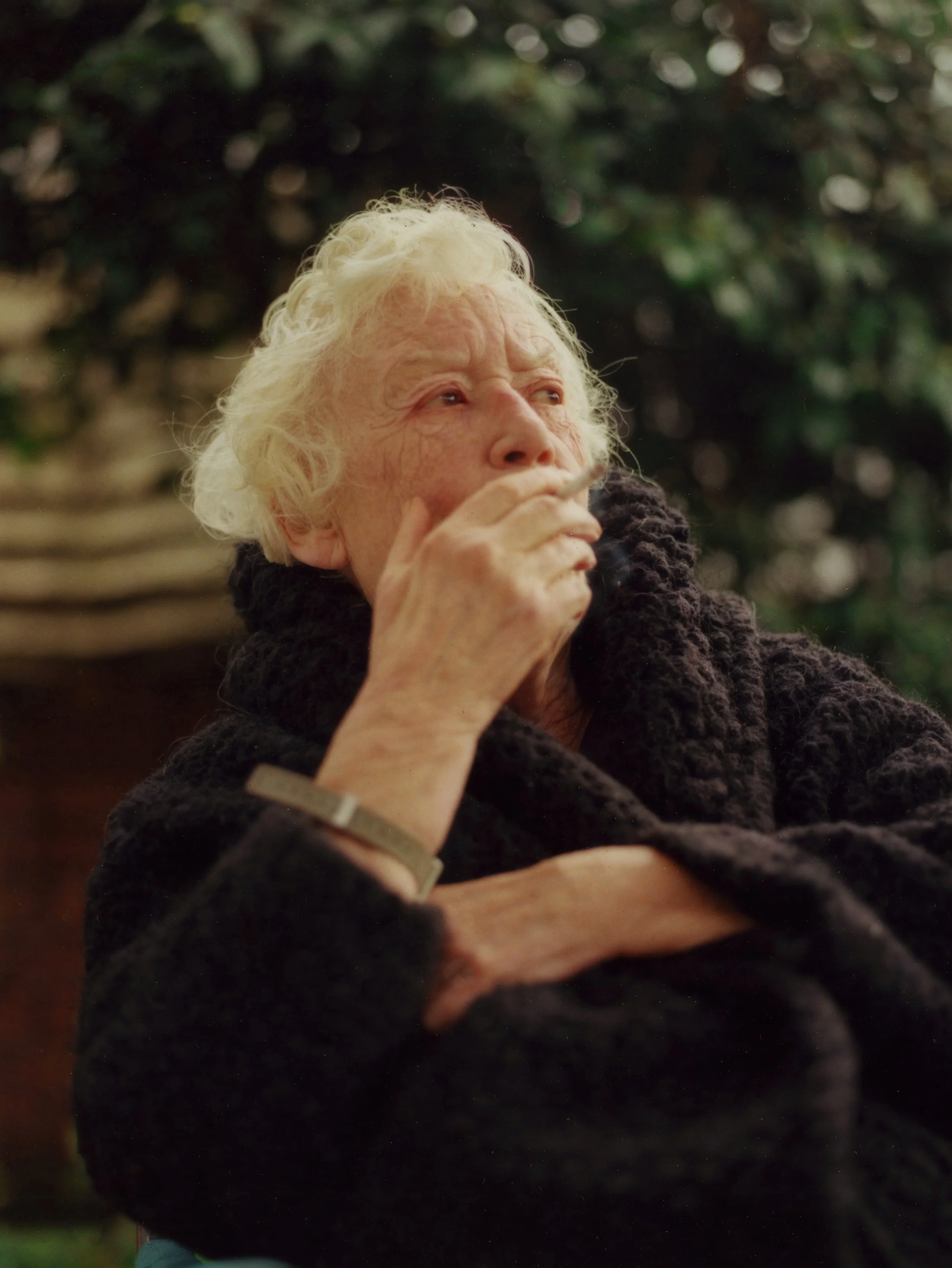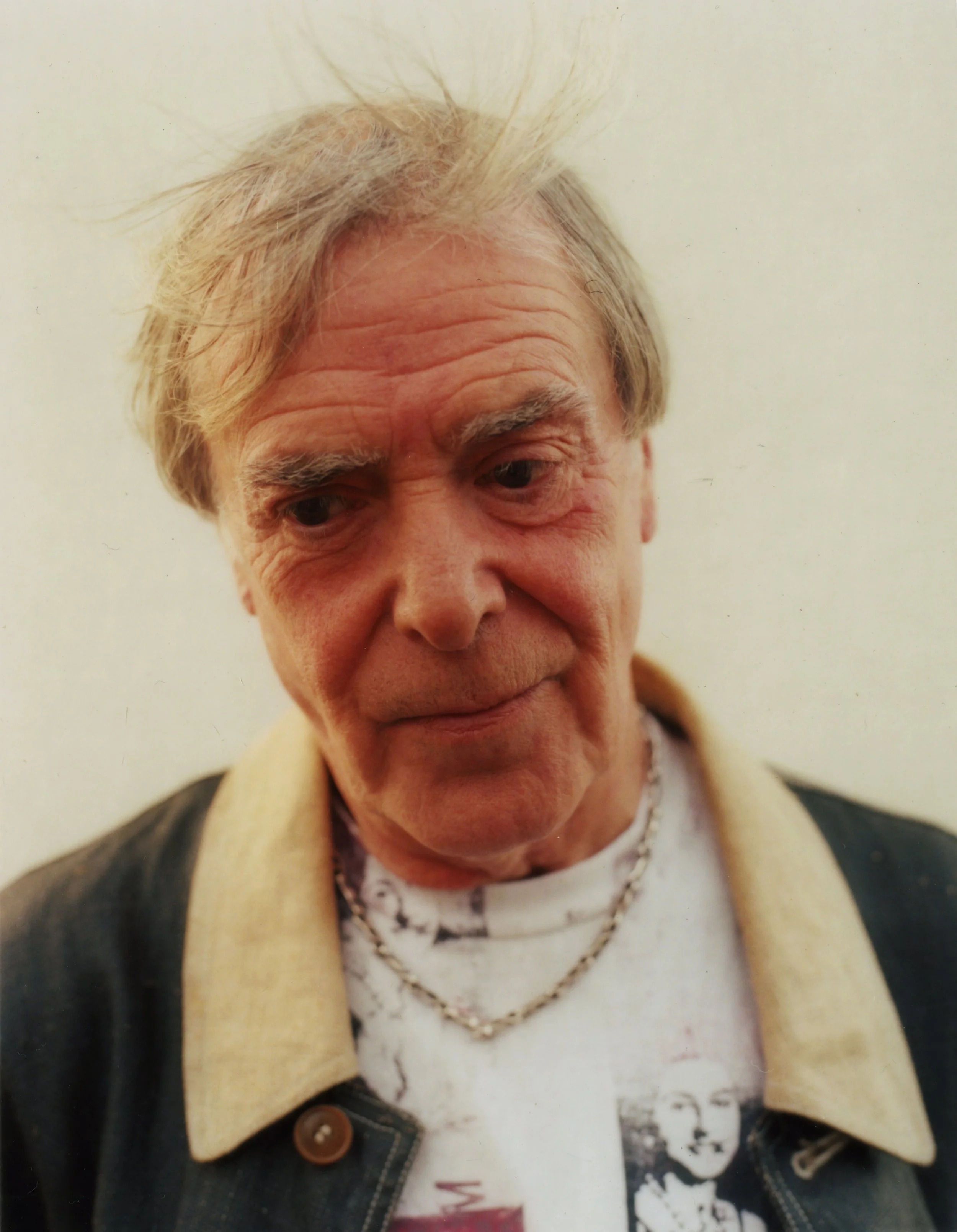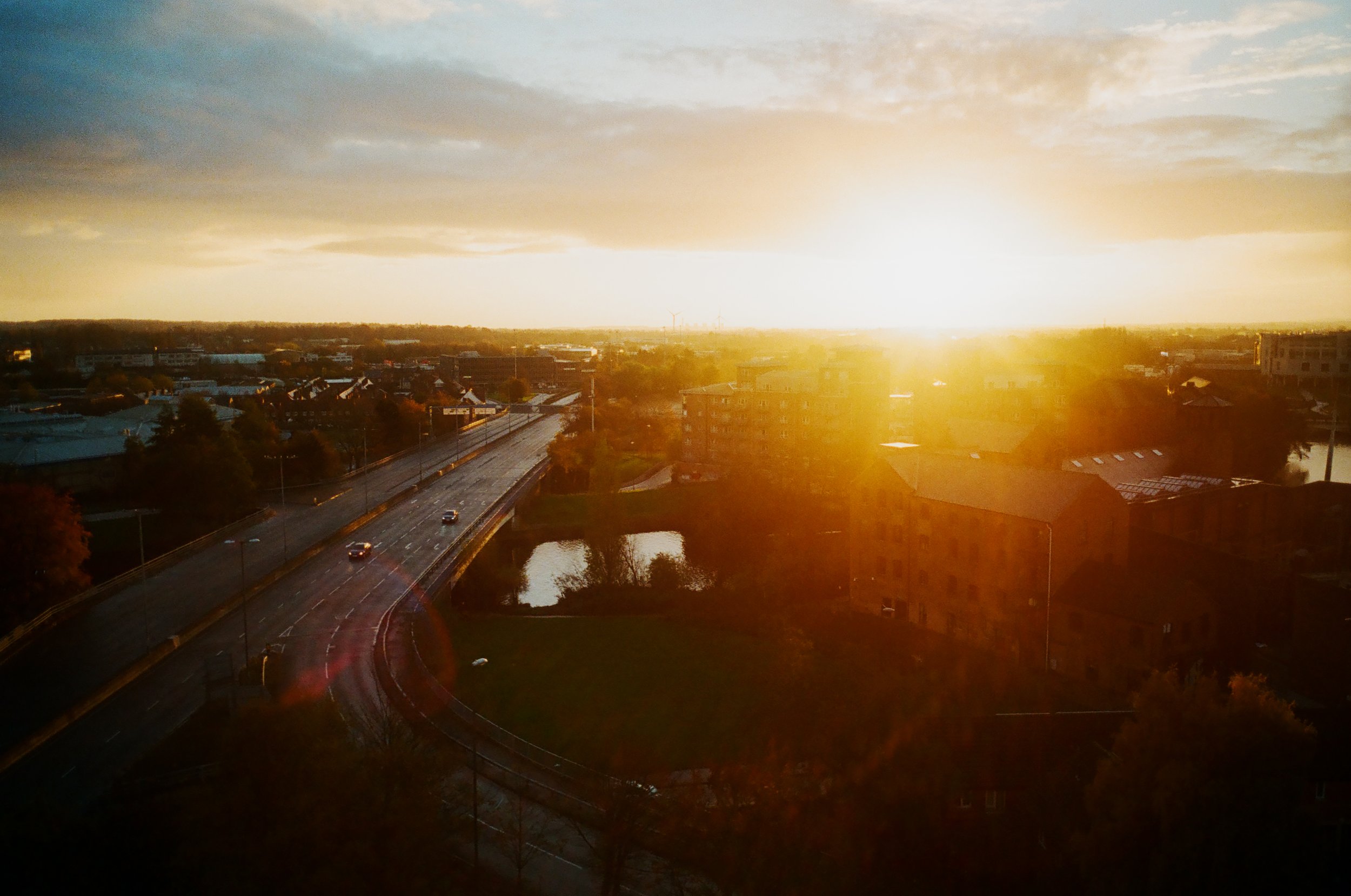
Derby at Dawn
Ghost Notes examines how punk culture endures in Derby as both historical movement and living force. Commissioned by FORMAT Festival, Deda and Derby QUAD for the "Dancing Through Time" initiative, this work combines stills and audio art to explore how subcultures shape local identities, challenge societal norms, and champion accessibility and innovation in the arts. It documents how punk's DIY ethos has evolved across generations while maintaining its core values. Photographing participants in significant spaces—from historic venues to community print workshops—creates more than documentation; these are extended conversations allowing stories to unfold naturally.
The project reveals punk as more than music or aesthetics—it's a complex social ecosystem where people create meaning through shared practices. By focusing on figures like Maggie, a background figure who fostered creativity and radical spirit, and Joey, who welcomes the challenge of carrying the torch forward, Ghost Notes reveals Derby's enduring punk identity. Through the interplay of carefully composed portraits and candid oral histories, the work captures both the visible markers of punk culture and the invisible bonds that have allowed it to thrive in Derby for nearly half a century.
There's An Art to Making Trouble
Derby was really... Derby was the radical of the Midlands”. Wrapped in a black jumper and reclining in her garden chair, Maggie pauses for a thoughtful drag of her cigarette, her white hair luminous against the foliage. Her animated recollections of Derby's print workshops and protest movements reveal how the radical energy she helped nurture in the 1970s still courses through her memories.
32 Years Later
As a defiant teenager, Glyn Lenney declared, 'I'm never going to... effing work in an effing factory'. Ten years later, he found himself working in one for 32 years. This stark reality, shared by many who lived through punk's heyday, speaks to how youthful dreams often yield to life's practicalities. Yet through his basement archive and dedication to preserving Derby's musical heritage, Glyn's punk spirit endures—a testament to how rebellion can take different forms as we age.
Morning Gossip
Up St. Peters Street
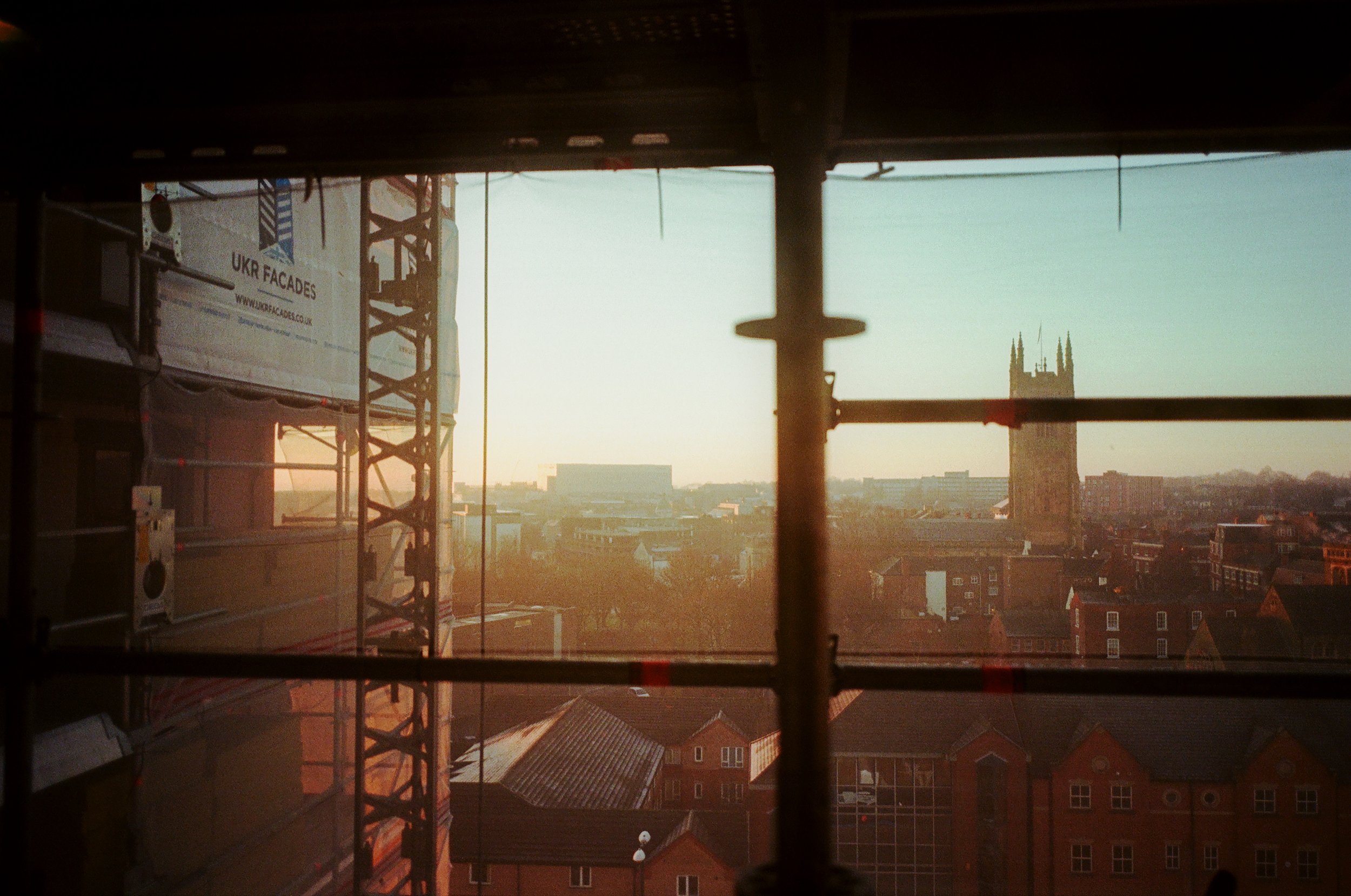
X
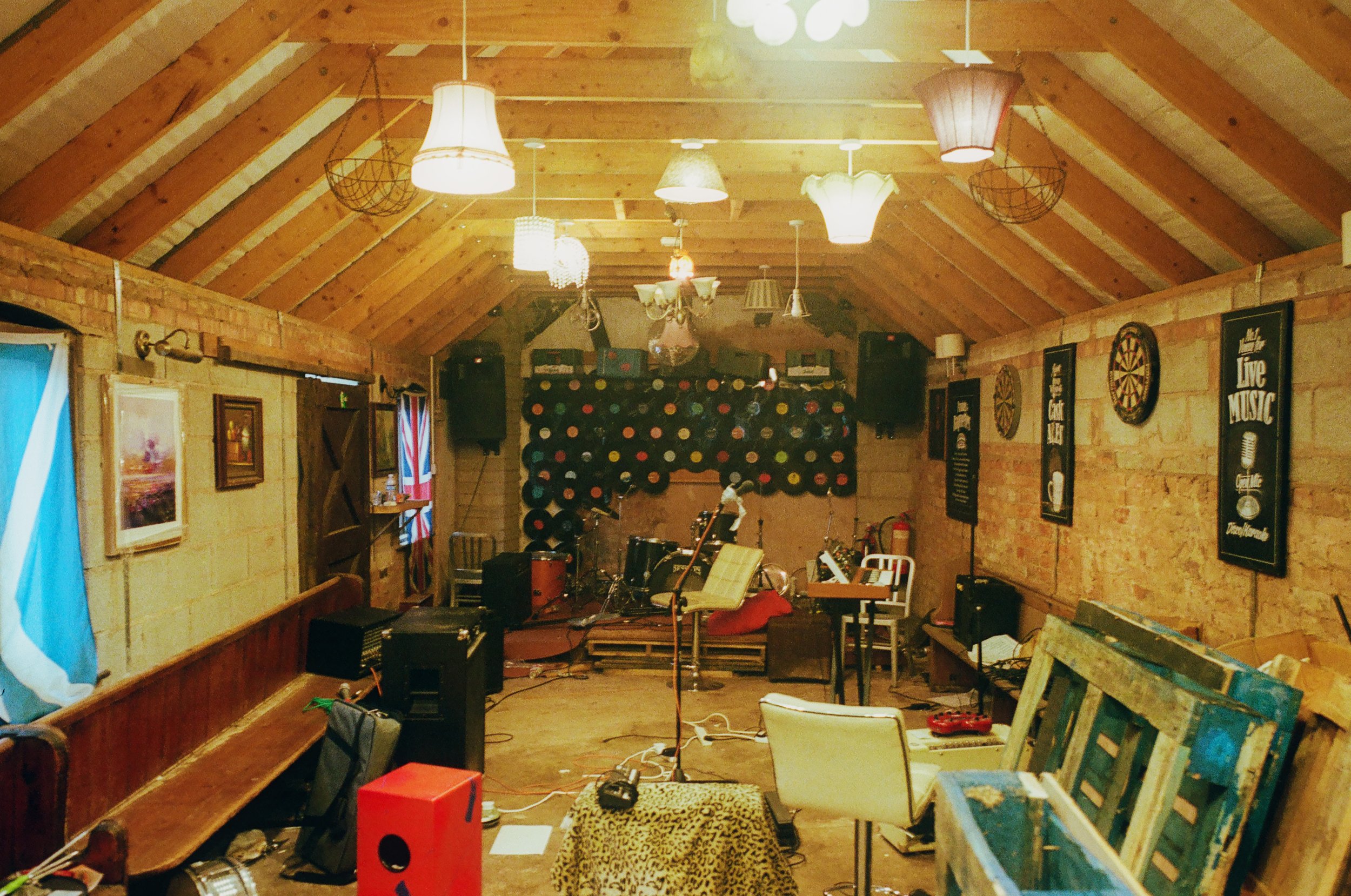
Keeping The Light On
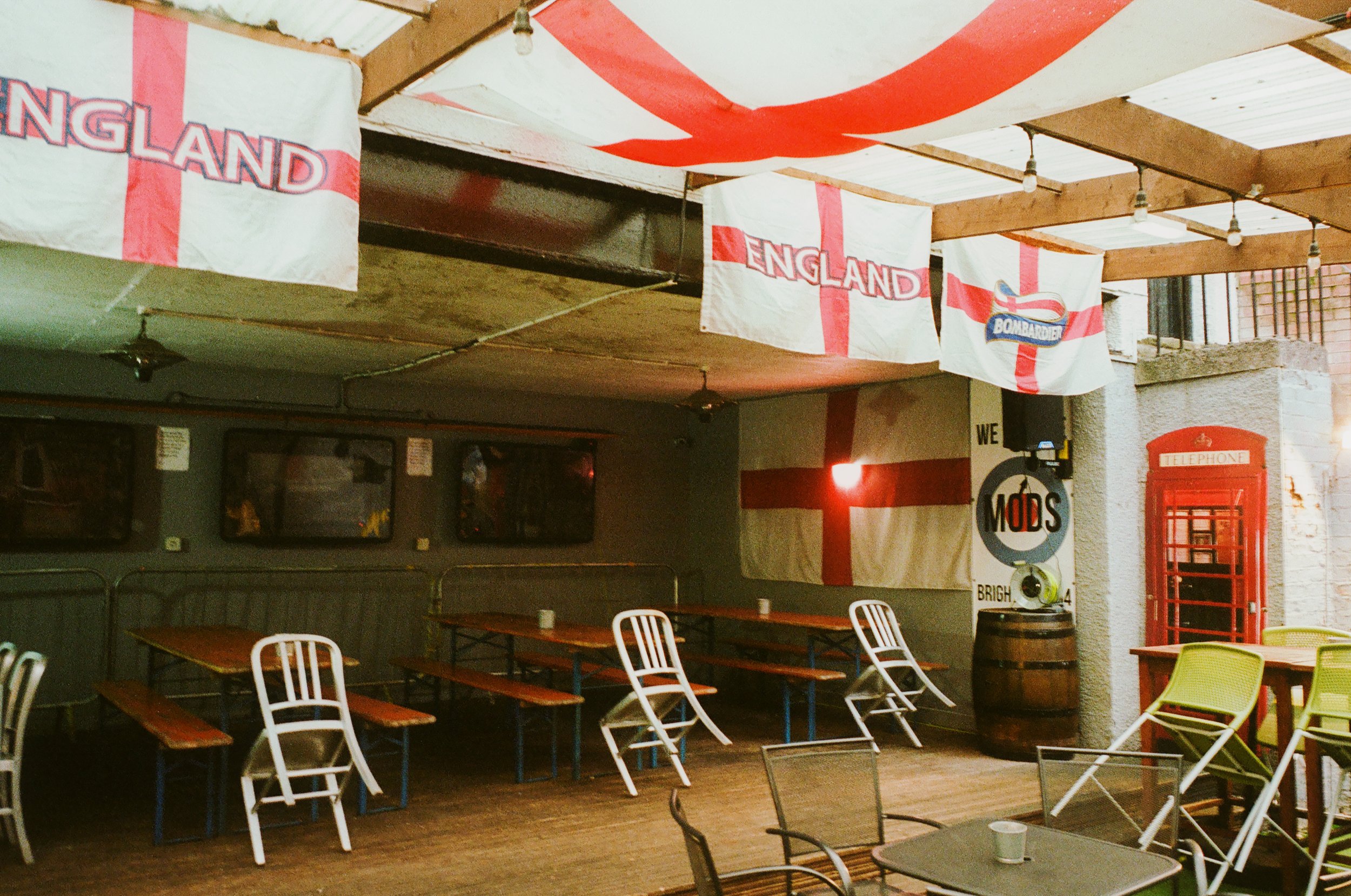
God Save the Scene
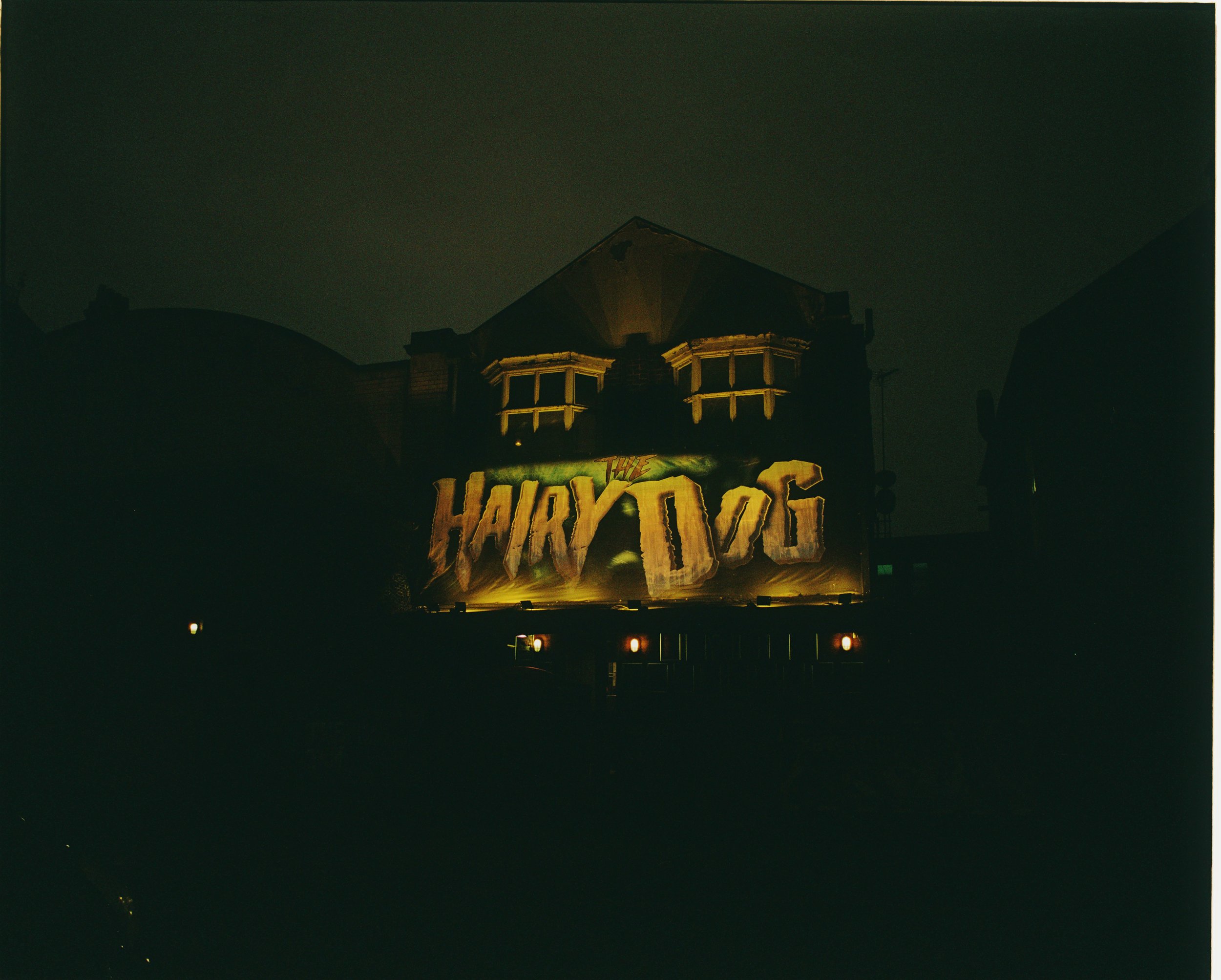
The Hairy Dog
-

Ann Wells
More than four decades after she first embraced punk, Ann Wells still carries its irreverent spirit. 'I'm free. I dress how I want to dress,' she declares with the same defiance that once made her a target during punk's confrontational heyday. Her leopard-print and tartan combinations have evolved, but her commitment to living authentically hasn't wavered. From playing bass in bands that supported UK Subs and The Damned to organising DIY gigs and marching for causes she believes in, Ann exemplifies how punk was never just about aesthetic rebellion but creating spaces where freedom could flourish. In Derby's still-vibrant scene, she remains connected through friendships with promoters and musicians, continuing the community she helped build.
-

Original, Not Ordinary
In her early sixties, Lidia reflects on Derby's punk scene with the same originality that defined her youth. 'I've always had my own opinion and I'm not afraid to say what I think,' she admits with characteristic candor. From her teenage years collecting vintage clothing to facing violence for her appearance, Lidia embodied punk's defiant authenticity. Today, her perspective bridges decades of cultural rebellion, offering wisdom on how punk's ethos of individual expression persists even as the world grows 'grey and boring.'
Abandoned Rooms
Behind graffitied barriers, the Assembly Rooms stands in suspended animation—a concrete monument to better days. The venue's decade-long closure following a 2014 fire symbolises Derby's broader cultural erosion. "We lost everything," reflects Glyn Lenney, 64. "No one comes to Derby anymore." While city officials promise demolition, the building's dormancy has pushed artists towards Nottingham's Rock City or smaller local pubs like The Hairy Dog. As musician Joey Greener notes: "Having something like that sitting empty for so long... it's a massive gap in Derby's infrastructure. We've got bands forming every week but nowhere for them to grow into.
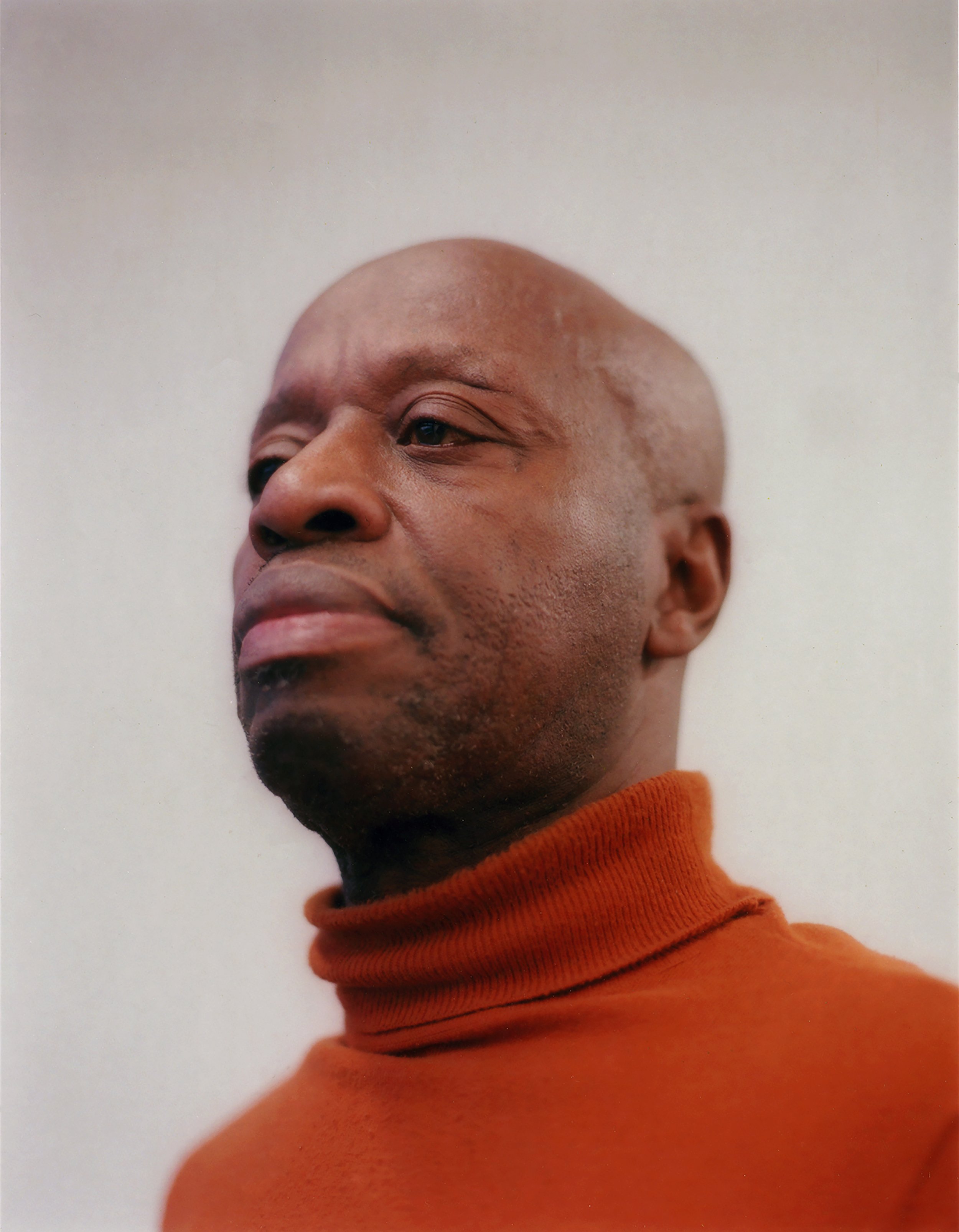
Artel Black, former manager of Derby's legendary Blue Note Club in the 1980s, where pioneering acts like New Order, Birthday Party and The Pogues played. “The minute I walked into the Blue Note Club, my life changed. I remember the afternoon like it was yesterday... That moment, that afternoon, my life changed.” Black helped shape Derby's alternative music scene, from being a Clouds nightclub regular to an influential figure in the city's cultural landscape.
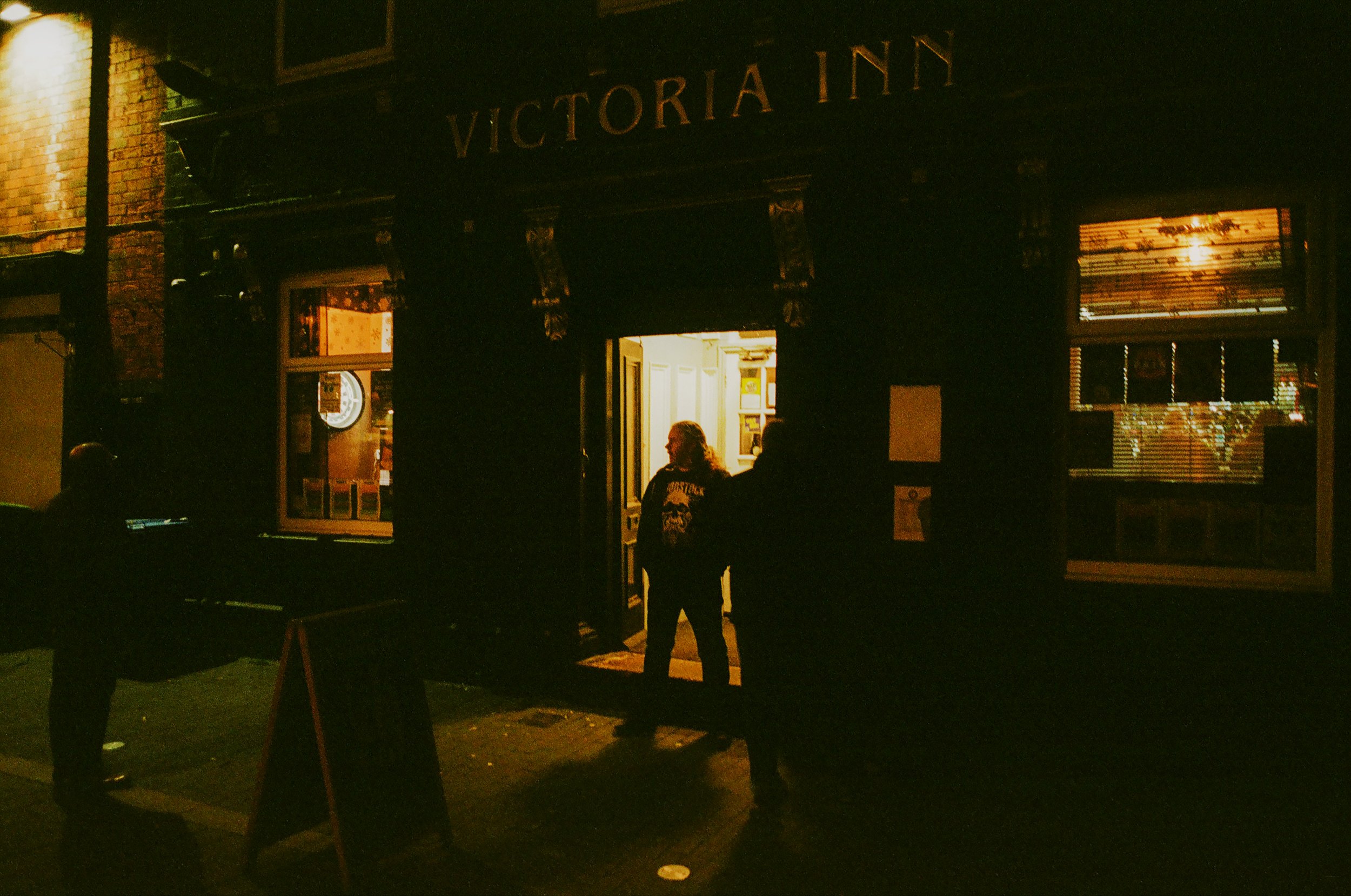
Keeping Watch
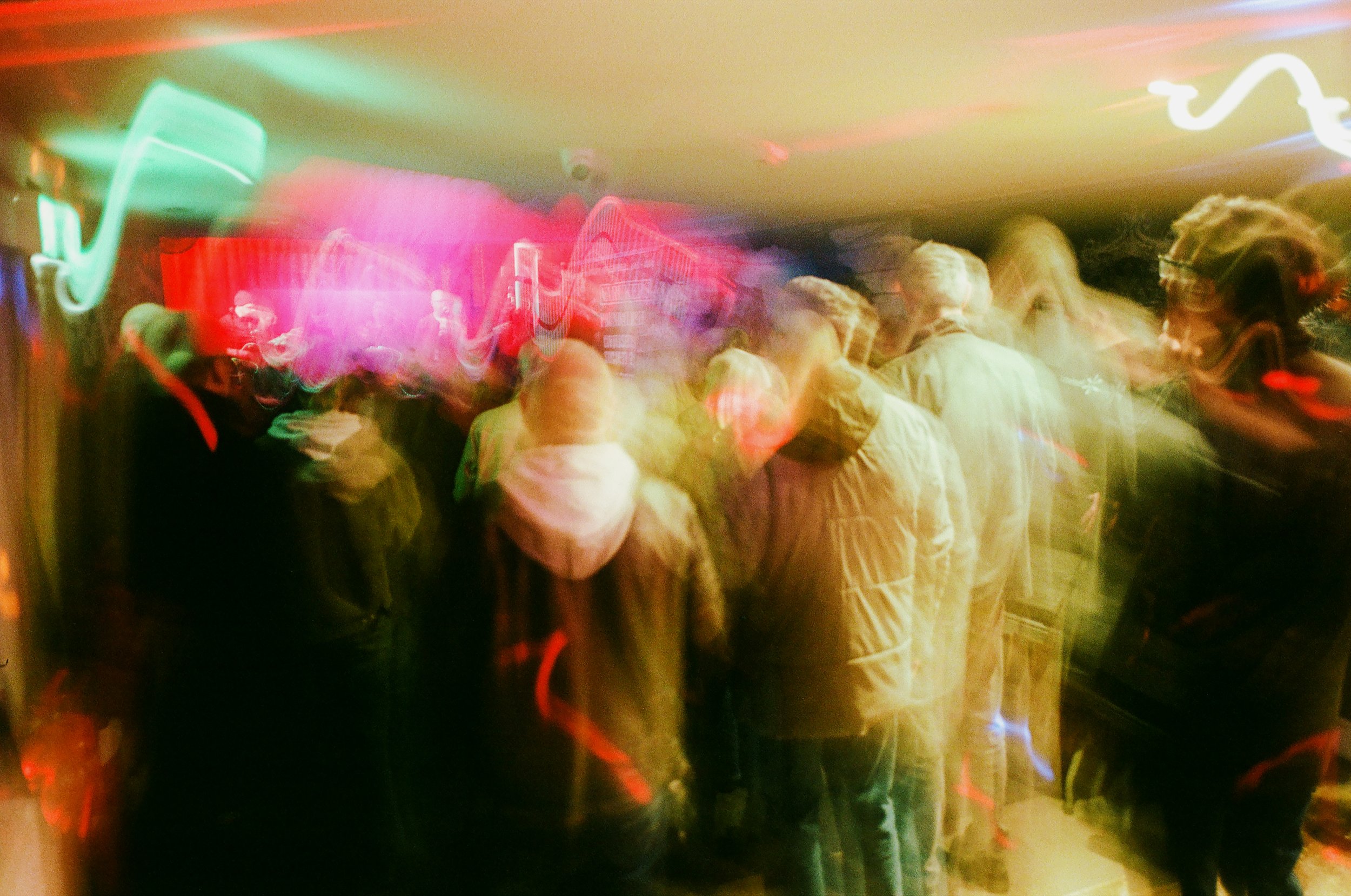
Movement is Medicine
Holding Space
Working in the spaces between established venues, Gez has been helping emerging promoters and musicians find their footing while addressing contemporary representation challenges. 'There's a scene that's bubbling, and I think it can be nurtured and built up, and I want to help that,' he reflects, highlighting his active role in fostering the next generation of Derby's culture while maintaining punk's core values of community, DIY ethos, and creative resistance.
Joey Fucking Greener
At just 19, Joey represents a new generation refusing to accept Derby's musical decline. Instead of lamenting closed venues or fleeing to bigger cities, he transforms unexpected spaces into thriving performance hubs. 'Don't write it off... there won't be a music scene if no one makes a music scene,' he insists, highlighting that Derby's creative future depends on active participation. Though he doesn't identify as punk, his actions—creating opportunities where none exist and filling rooms with energy—speak louder than any label, carrying forward a tradition of fierce independence and community spirit.
Punk Never Dies
Aaron Williamson embodies the defiant spirit that defined Derby's 1970s punk scene in this intimate portrait. As he recalls, "Punk gave you the belief that you could be who you want to be." He describes it as "year zero" - a cultural reset that liberated young people from conformity when the mainstream offered little. For Williamson, the movement wasn't about fashion but fierce independence - "a platform to step forward into culture and participate rather than passively receive it." Decades later, his expression still carries that revolutionary energy in his own practice, a living connection to punk's enduring legacy of creative resistance.
Nothing Changes

Derby at Dusk
Acknowledgments
This body of work and exhibition would not have been possible without the generosity, trust, and enthusiasm of Derby's punk community, past and present. My deepest gratitude goes to all who shared their stories, memories, and spaces with me.
Special thanks to the sitters who allowed me to photograph them and record their stories: Aaron Williamson, Ann Wells, Artel Black, Gez Addictive, Dan Wheeler, Glyn Lenny, Joey Greener, Lidia Puczynksa, and Maggie Nix. Your candor and insights form the backbone of this project.
The audio documentary that accompanies these photographs weaves together the voices of Derby's punk community across generations. This integral sound piece was produced by myself and Tate Hingorani-Short, with Tate's expert editing and mixing bringing the oral histories to life in a way that complements and enriches the visual narratives.
I am enormously grateful to Ocean Farini for their crucial role in participant outreach, photo post-production, and ongoing support.
Special acknowledgment to Dan Wheeler and Make it Easy Lab for processing the film and creating the beautiful handprints for the hero portraits. Dan's craftsmanship and dedication to analogue processes mirror the DIY spirit at the heart of this project.
To the institutions that made this work possible: FORMAT Festival, Derby QUAD, and Déda—Derby's Centre for Dance, Movement and Creativity. Particular appreciation goes to Peter Bonnell, former Artistic Director of Derby QUAD, alongside Jenna Eady and Jodi Kwok, whose belief in this project sustained it from conception to completion.
Thank you to The Hairy Dog, Victoria Inn, White Horse, and Exeter Arms for opening your doors and preserving spaces where Derby's music culture continues to thrive.
This project is dedicated to those who create & cultivate spaces—physical, cultural, and emotional—where we can express ourselves freely. From the radical spirit of the 1970s to today's emerging scene, you remind us that authentic community endures when we make it happen together.
Francis Augusto
March 2025
